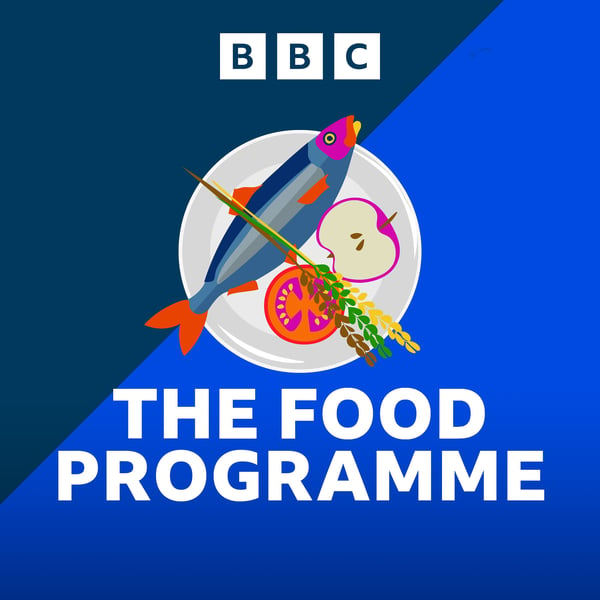Professor Michael Crawford: A Life through Food
The Food Programme
BBC
4.4 • 943 Ratings
🗓️ 20 June 2025
⏱️ 43 minutes
🧾️ Download transcript
Summary
In this episode of 'A Life Through Food', Sheila Dillon meets one of the most provocative scientific minds of the last half-century: Professor Michael Crawford. Now in his 90s, Crawford’s pioneering research into the brain and nutrition has reshaped how we understand the essential role of food—especially Omega-3 fatty acids—in human development and health.
Long before Omega-3 became a buzzword on supermarket shelves, Crawford was uncovering its vital connection to brain function. His work, often at odds with mainstream science, has led to over 300 peer-reviewed papers and three books challenging conventional theories of human evolution and nutrition.
The programme also features chef and broadcaster Rick Stein, who reflects on Crawford’s influence and the importance of sustainable seafood. And we hear from Dr Anneli Löfstedt, a post-doctoral researcher at the University of Oxford’s Smith School of Enterprise and Environment, who is building on Crawford’s legacy by exploring the links between nutrition, sustainability, and the future of food systems.
Presented by Sheila Dillon Produced by Natalie Donovan for BBC Audio in Bristol.
Transcript
Click on a timestamp to play from that location
| 0:00.0 | What is love? |
| 0:03.0 | Is it chemistry, fate or a disaster waiting to happen? |
| 0:07.0 | Sometimes you mistake other things for love. |
| 0:10.0 | Join me, Ryland, on my new podcast as I ask experts and a few familiar faces what love really means. |
| 0:16.3 | Because it turns out it's a bit more complicated than happily ever after. |
| 0:20.7 | You should think of it as the daily commitment you make to someone that you care about. |
| 0:25.3 | Ryland, how to be in love. Listen on BBC Sounds. |
| 0:31.1 | BBC Sounds, music, radio, podcasts. |
| 0:34.7 | Are we getting more depressed, maybe even stupider, as we eat less and less fish and shellfish, |
| 0:41.6 | less leafy vegetables, less meat from animals and poultry that have been reared naturally? |
| 0:48.0 | Well, some research points that way. |
| 0:50.3 | In this edition of the food program, I talked to a scientist who a long time ago predicted our current mental health crisis. |
| 0:58.7 | Have a listen. |
| 1:00.5 | It's hard to go into a supermarket these days without spotting at least one label boasting about its omega-3 content. |
| 1:08.5 | But long before it became a staple of food marketing, a British scientist was |
| 1:13.3 | uncovering what he believes is the real story behind why these essential fatty acids matter, |
| 1:20.5 | particularly for our brains. And they're called essential because we have to eat them, |
| 1:25.1 | as our bodies can't produce them. In this program, I'm meeting one of the great scientific provocateurs of the last 50 years, |
| 1:33.6 | Professor Michael Crawford, now in his 90s, to hear how his research began, |
| 1:39.5 | why he champions food from the sea and fresh waters as brain food and how he thinks we can increase |
| 1:46.3 | our fish intake without harming the planet. |
| 1:49.7 | All the things that we're doing on land will be doing in the sea. I'm not talking about |
... |
Please login to see the full transcript.
Disclaimer: The podcast and artwork embedded on this page are from BBC, and are the property of its owner and not affiliated with or endorsed by Tapesearch.
Generated transcripts are the property of BBC and are distributed freely under the Fair Use doctrine. Transcripts generated by Tapesearch are not guaranteed to be accurate.
Copyright © Tapesearch 2025.

